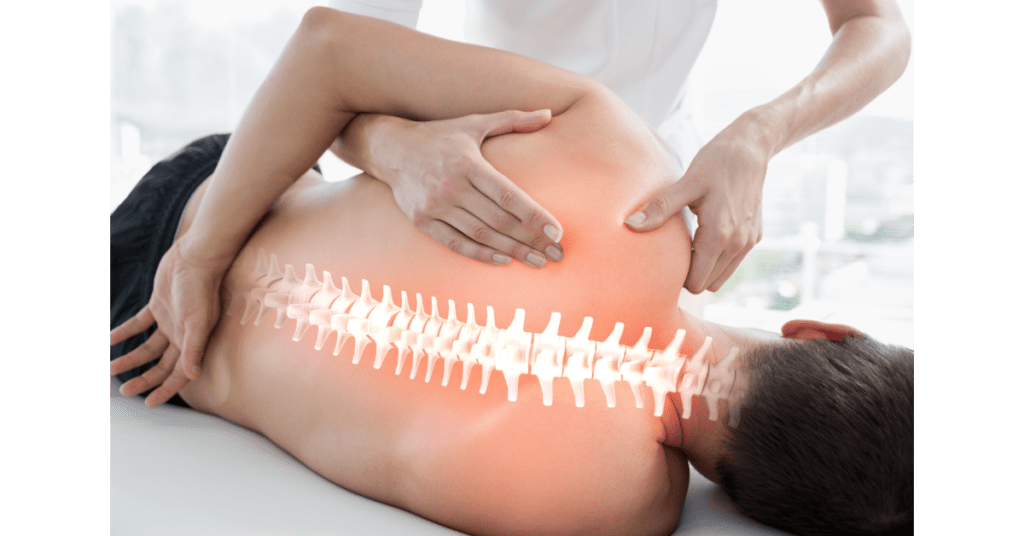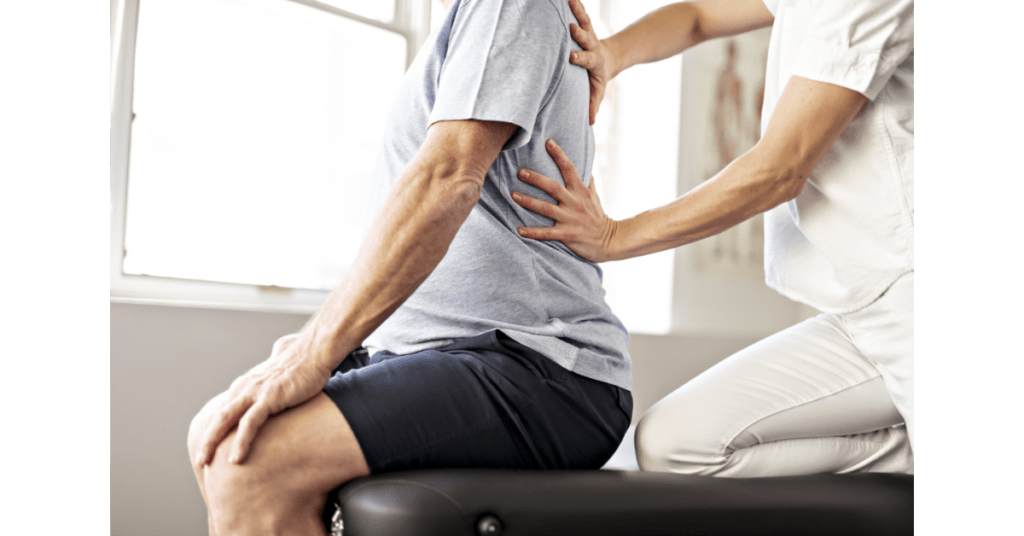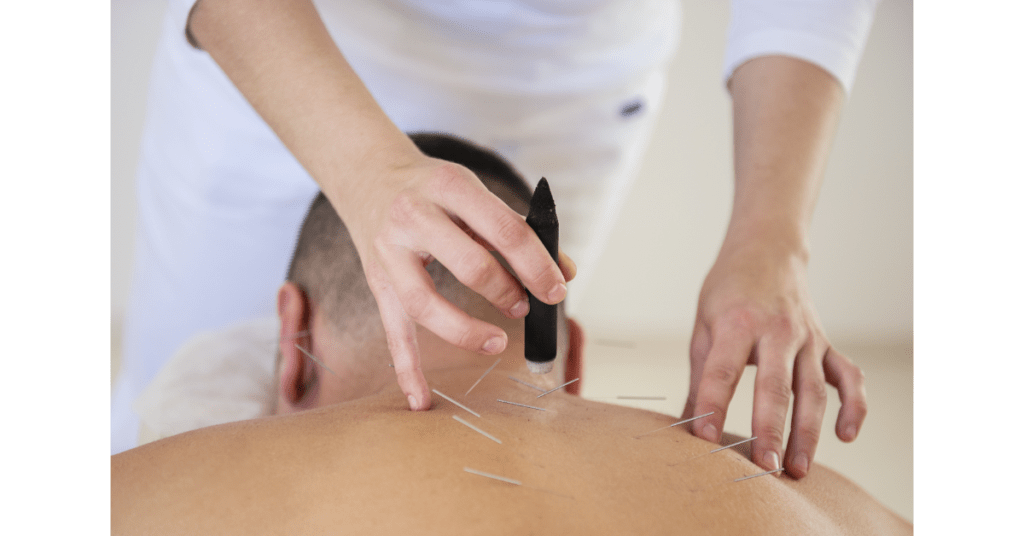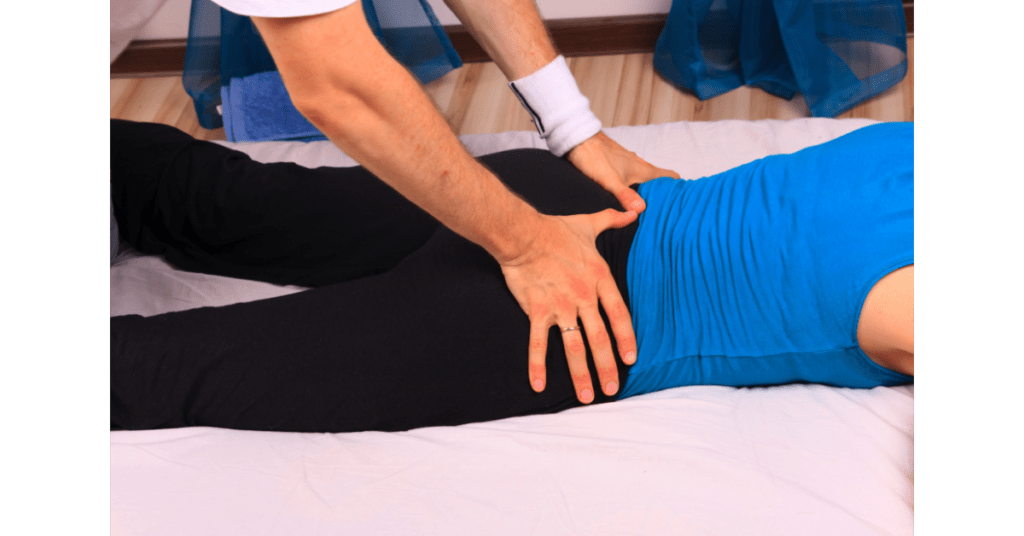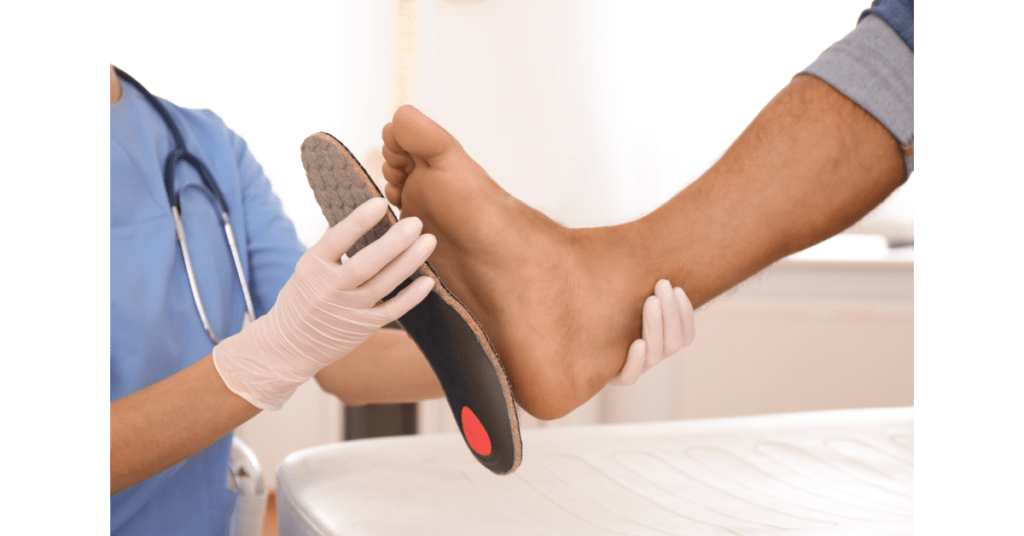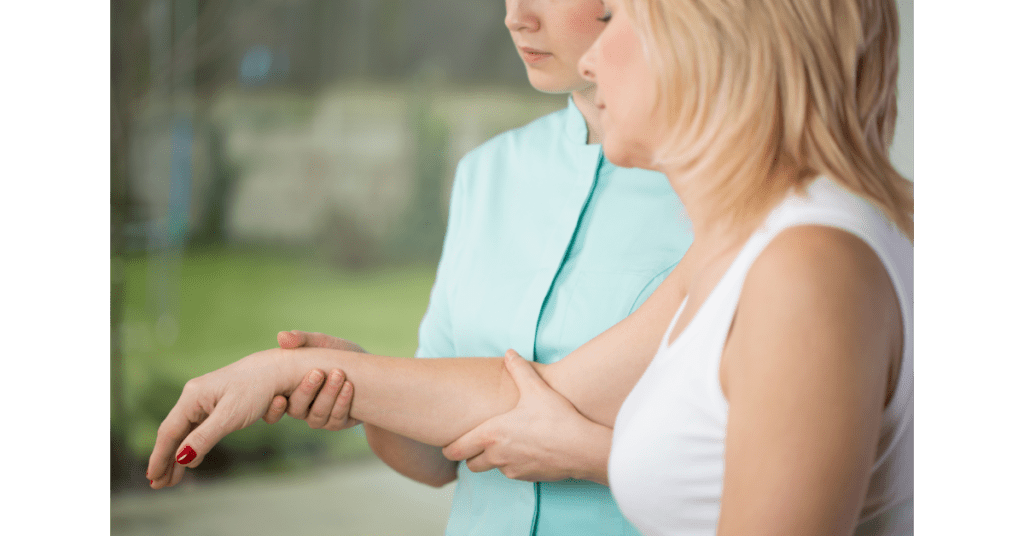What is Patellar Tendonitis?
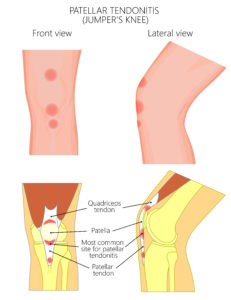
Patellar Tendonitis (or tendinitis) is also known as Jumper’s Knee or Runner’s Knee. This condition refers to the irritation or inflammation of the tendons (thick fibrous bands of tissues connecting muscles to bones). A tendon is like an elastic band that stretches with your movement. Tendons help absorb some shocks from your muscles when you move. Tendonitis can occur in many parts of the body. However, typically it erupts in areas where there is a more significant amount of movement, like the knees. This condition occurs when the patellar tendon that connects the patella (knee cap) to your tibia (shin bone) becomes inflamed or injured and weakens the tendon.
What Causes Patellar Tendonitis?
A sudden injury to the patellar tendon, from jumping and running like in gymnastics, basketball, football, dancing, tennis, volleyball, and track and field can cause Patellar tendonitis. This is why it is also called “runner’s knee” or “jumper’s knee.” Sports, Trauma, and Diseases are the major risk factors that increase the likelihood of developing patellar tendonitis. Sports with repetitive movements (like jumping and running), Past knee surgery, Past injuries such as a knee fracture or dislocation, Weak or inflexible knee muscles, Overloading the knee joint, Improper technique, or training in sport. Trauma, like hitting your knee against something, or falling or wearing Improper footwear. Diabetes, Inflammatory diseases like gout and rheumatoid arthritis, Osteoarthritis, and Increasing age are other factors, although it is most common in athletes between the ages of 15-30.
What are the Signs and Symptoms of Patellar Tendonitis?
Signs and symptoms of Patellar Tendonitis vary depending on the cause. These include Tenderness, pain, or stiffness in the knee, redness, inflammation, and swelling, Pain that gets worse when you bend the knee (like using the stairs or sitting down), kneeling or squatting, Pain after sitting for a long period of time with your knees bent, Decreased range of motion and Decreased strength.
Are you concerned about the symptoms of patellar tendonitis? Book an assessment with a physiotherapist in Scarborough, Toronto or Woodbridge, Vaughan today.
Can Patellar Tendonitis Go Away By Itself?
Yes, if treated successfully at home, patellar tendonitis can go away. However, if the treatment is not done correctly, it can turn into tendonosis. Tendonosis (also spelt tendinosis) is a chronic, recurring condition that results from overuse, repetitive strain or repeated injuries to the same area. It can also happen if an injury has not healed properly. Tendonosis can actually degenerate the tendon, if proper treatment or activity modification is denied.
Can You Prevent Patellar Tendonitis?
If you play sports, or your job requires repetitive kneeling, bending or lifting movements, you have an increased risk of patellar tendonitis and are more prone to developing it. You will need to Consult a physiotherapist for a custom treatment plan to address your specific concerns. However, you can also take steps to prevent or reduce the chance of developing the condition.
Exercising regularly, including stretching exercises such as yoga or tai chi (at least 30 minutes daily), Easing into new exercise routines, Warming up before exercise, Stretching after exercise, Taking regular breaks from repetitive movements, Practicing good posture, Practicing proper technique in sport, Wearing orthotics and proper shoes, Eating an anti-inflammatory diet (avoiding processed and refined foods and sugar) as well as maintaining a healthy weight (reducing pressure on the knee).
Are you looking for physiotherapy or a Chiropractor? If Yes, then visit Simply Align Rehab Physio in Scarborough/Toronto or Woodbridge/Vaughan or you can always call or text us for your Physiotherapy or Chiropractor needs in Toronto at (416) 438-3230 or For Physiotherapy or Chiropractor need in Vaughan (Woodbridge) at (905) 638-9840.
How is Patellar Tendonitis Treated?
Treatment for patellar tendonitis includes At-home treatment, Physiotherapy, and Medication. At-home treatment usually begins with applying ice packs for 10-15 minutes, 3-4 times a day, typically for 48 hours or until the swelling goes down, resting your knee and using crutches. Anti-inflammatory painkillers like Advil or Aleve are given to reduce pain and swelling. Avoiding activities that cause pain or put stress on the knee, coupled with low-impact activities (like biking or swimming) are recommended. Non-steroidal anti-inflammatory drugs (NSAIDs) such as ibuprofen or naproxen are prescribed, even though they are reported to hinder soft tissue healing and can have a negative effect on tendon repair. Corticosteroid injections are rare due to the risk of tendon rupture and increased tendon weakness. Physiotherapy is a drug-free and non-surgical treatment that aims at reducing pain and swelling, regaining strength, increasing joint mobility, and function, and preventing recurrence.
Physiotherapy will depend on individual needs. Cold therapy following the PRICE protocol, Stretching, strengthening, and range of motion exercises, Stability and endurance exercises, a Personalized exercise plan, Activity modifications and functional retraining, Patient education, Assistive devices such as orthotics or bracing as well as Cross-disciplinary pain-relieving therapies like Therapeutic ultrasound, Manual therapy (joint and soft tissue mobilizations), Acupuncture and Interferential current therapy (IFC) or TENS therapy. At our clinic we have notice by using Simply Align Technique which includes advance physical modalities, activity modification and specific exercises we have faster, longer lasting results with reduced healing time. This unique technique is available at both of our clinics in Toronto (Scarborough) and Vaughan (Woodbridge).
